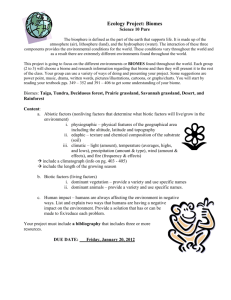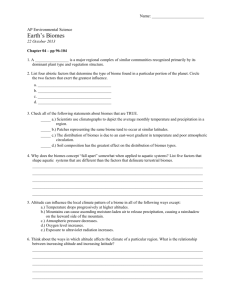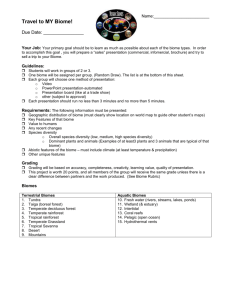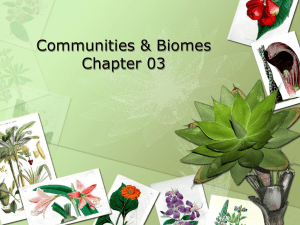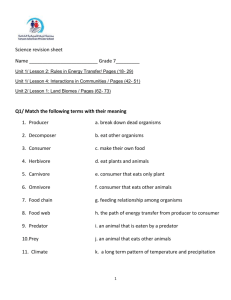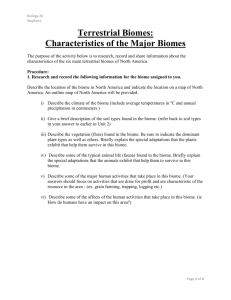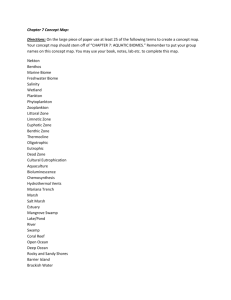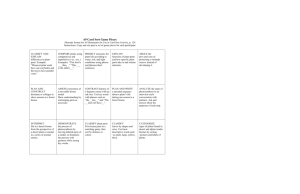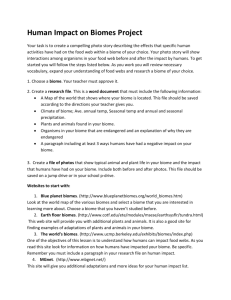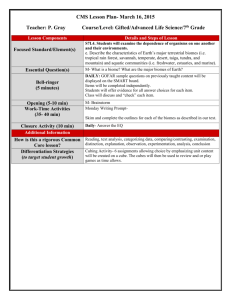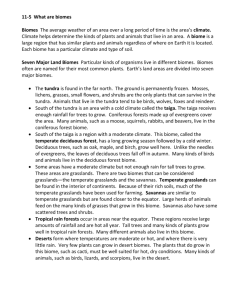Biomes project revised
advertisement
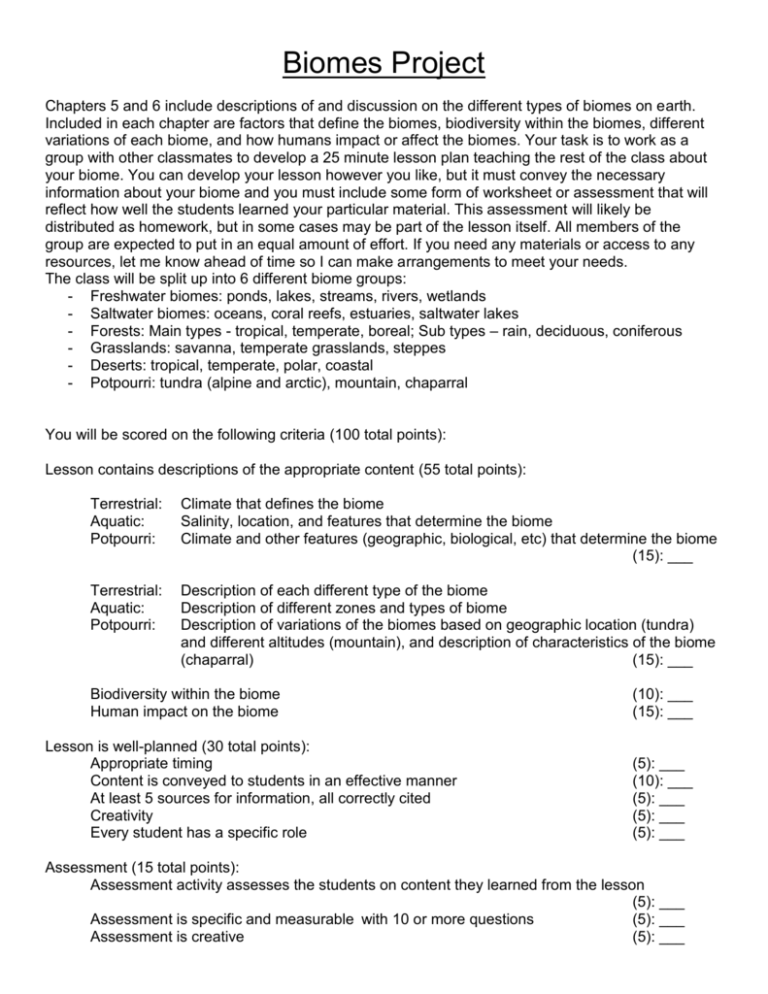
Biomes Project Chapters 5 and 6 include descriptions of and discussion on the different types of biomes on earth. Included in each chapter are factors that define the biomes, biodiversity within the biomes, different variations of each biome, and how humans impact or affect the biomes. Your task is to work as a group with other classmates to develop a 25 minute lesson plan teaching the rest of the class about your biome. You can develop your lesson however you like, but it must convey the necessary information about your biome and you must include some form of worksheet or assessment that will reflect how well the students learned your particular material. This assessment will likely be distributed as homework, but in some cases may be part of the lesson itself. All members of the group are expected to put in an equal amount of effort. If you need any materials or access to any resources, let me know ahead of time so I can make arrangements to meet your needs. The class will be split up into 6 different biome groups: - Freshwater biomes: ponds, lakes, streams, rivers, wetlands - Saltwater biomes: oceans, coral reefs, estuaries, saltwater lakes - Forests: Main types - tropical, temperate, boreal; Sub types – rain, deciduous, coniferous - Grasslands: savanna, temperate grasslands, steppes - Deserts: tropical, temperate, polar, coastal - Potpourri: tundra (alpine and arctic), mountain, chaparral You will be scored on the following criteria (100 total points): Lesson contains descriptions of the appropriate content (55 total points): Terrestrial: Aquatic: Potpourri: Climate that defines the biome Salinity, location, and features that determine the biome Climate and other features (geographic, biological, etc) that determine the biome (15): ___ Terrestrial: Aquatic: Potpourri: Description of each different type of the biome Description of different zones and types of biome Description of variations of the biomes based on geographic location (tundra) and different altitudes (mountain), and description of characteristics of the biome (chaparral) (15): ___ Biodiversity within the biome Human impact on the biome Lesson is well-planned (30 total points): Appropriate timing Content is conveyed to students in an effective manner At least 5 sources for information, all correctly cited Creativity Every student has a specific role (10): ___ (15): ___ (5): ___ (10): ___ (5): ___ (5): ___ (5): ___ Assessment (15 total points): Assessment activity assesses the students on content they learned from the lesson (5): ___ Assessment is specific and measurable with 10 or more questions (5): ___ Assessment is creative (5): ___
